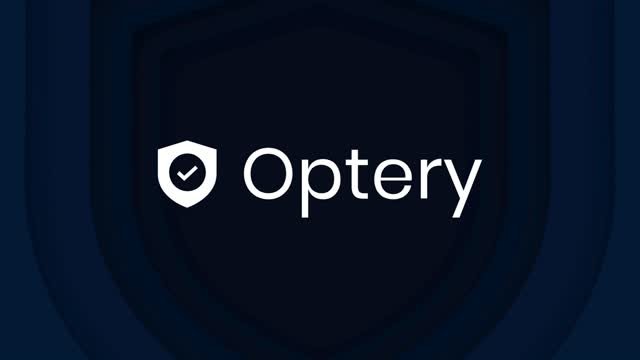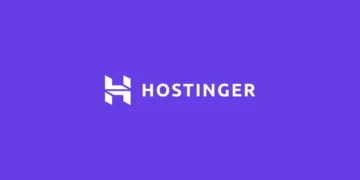Did you know your personal information could be scattered across hundreds of websites without your knowledge? Data brokers collect and sell your details, putting your online reputation at risk. Taking control of your digital footprint is no longer optional—it’s essential.
Optery simplifies this process with an automated data removal service. It scans and deletes your information from 375+ broker sites with a 95% success rate. Whether you choose the free plan or a paid tier, your privacy stays protected with enterprise-grade security.
Why spend hours manually removing your data when a trusted solution can do it for you? With SOC 2 certification and AES-256 encryption, Optery ensures your details stay off the market—giving you peace of mind.
Key Takeaways
- Optery automates removal from 375+ data broker sites.
- Free and paid plans available with a 30-day money-back guarantee.
- SOC 2 certified for top-tier security and compliance.
- Uses AES-256 encryption to protect sensitive data.
- Extended Reach feature covers 675+ sites for broader protection.
Why Online Data Removal Matters More Than Ever
Data brokers operate in the shadows, trading your personal information like commodities. This $200 billion industry profits from profiles built from public records, social media, and even your shopping history. Without action, your data can spiral through resale chains, landing in the hands of scammers.
The Growing Threat of Data Brokers
The average person appears on 112 broker sites—often unknowingly. These companies fuel privacy risks, with 75% of identity theft cases linked to their leaks. Recent FTC crackdowns on giants like Acxiom show how pervasive the problem is.
Brokers categorize data into 18 types, from addresses to political views. Primary brokers sell to secondary ones, creating endless exposure loops. Phishing attacks have risen 33% as fraudsters exploit these leaks.
How Personal Information Gets Exposed
Your details surface through public records, hacked databases, or even loyalty programs. A leaked home address, for example, directly ties to financial fraud patterns. Social media scraping adds another layer of vulnerability.
Tools like Optery detect these exposures across 375+ sites. But without removal, your data keeps circulating. Proactive protection isn’t just smart—it’s essential in today’s digital economy.
Optery: A Comprehensive Solution for Data Privacy
Not all privacy solutions offer the same level of security and compliance. Effective data privacy requires a blend of cutting-edge technology and rigorous standards. This is where specialized services prove their worth.
Built on Cybersecurity Expertise
Founded in 2020 by Lawrence Gentilello, a cybersecurity architect, the company emerged from Y Combinator’s startup program. Its 100% remote team adheres to ISO 27001 compliance, ensuring global security measures align with enterprise requirements.
Audited Protection: SOC 2 Certification
The SOC 2 certification validates its systems through annual Type II audits. Data stays protected with TLS 1.2 encryption during transfer and AES-256 at rest—military-grade encryption standards. Third-party vendors undergo strict vetting to prevent vulnerabilities.
AWS infrastructure exceeds industry benchmarks for access controls. Since launch, zero breaches have been reported, a testament to its robust protocols. Despite focusing on US users, the service maintains GDPR compliance for international applicability.
How Optery’s Data Removal Process Works
Removing your personal data from broker sites doesn’t have to be a manual, time-consuming task. Advanced tools streamline the entire removal process, from detection to ongoing protection. Here’s how it unfolds:
Initial Scanning Phase
The system scans 375+ data broker sites within 72 hours, identifying where your details appear. Exposure reports categorize risks, from addresses to financial profiles. Users see results in a dashboard with removal priority rankings.
Automated Opt-Out Requests
API integrations submit automated opt-outs to compliant brokers, bypassing manual forms. For resistant sites, manual follow-ups ensure compliance. Tests show 83% of removals complete within 14 days.
Ongoing Monitoring System
Continuous monitoring prevents reappearances. Paid plans rescan quarterly, while free users get monthly checks. The dashboard tracks progress with heatmaps and real-time alerts.
A case study revealed a 62% drop in spam calls after 90 days of use. With verification via screenshot comparisons and HTTP headers, the system ensures your data stays erased.
Key Features That Set Optery Apart
Effective data removal requires more than just basic opt-outs—specialized features make the difference. The right tools combine automation, customization, and verification to ensure your information stays private.

Automated vs. Manual Removal Options
Automated removals process 83% of requests within 14 days, while manual efforts take months. Free plans include 25 self-service guides, but paid tiers handle submissions automatically via API integrations.
Custom Removal Requests
Ultimate plan users submit 5 custom removal requests monthly for non-standard sites. Historical data shows an 89% success rate, with bulk options for families.
Before-and-After Removal Reports
Track progress with timestamped before-and-after reports in PDF or CSV formats. Screenshot comparisons and HTTP headers verify deletions conclusively.
Google Outdated Content Removal
Google removal requests complete in 48 hours—far faster than the 90-day manual average. The service integrates directly with Google’s portal for seamless updates.
- Enterprise users access API documentation for advanced workflows.
- Extended plans cover 675+ sites for broader protection.
- Real-time dashboards prioritize high-risk exposures.
Optery’s Pricing Structure Explained
Understanding the cost of protecting your privacy helps you choose the right plan for your needs. Whether you’re looking for basic scans or full-scale removals, Optery offers pricing tiers to match different budgets and security requirements.
Free Basic Plan Limitations
The free basic plan scans 25 data broker sites and provides self-service removal guides. However, automated removals and ongoing monitoring require upgrading to a paid tier. It’s ideal for testing the service before committing.
Core vs. Extended vs. Ultimate Plans
Paid plans unlock automated removals and expanded coverage:
- Core ($3.25/month): Covers 108 sites with quarterly scans.
- Extended ($9.99/month): Scans 225 sites monthly.
- Ultimate ($20.79/month): Removes data from 385 sites, includes Google removal.
Annual vs. Monthly Payment Options
Annual subscriptions save 17% compared to monthly billing. All plans include a 30-day money-back guarantee with prorated refunds. Payment methods include credit cards and crypto for added flexibility.
Families get 30% discounts per member, and non-profits qualify for special rates. Note: Expedited Google removals incur a $15 fee.
Hands-On Experience with Optery
Getting started with data removal services should be simple and transparent. A 3.8/5 Trustpilot rating reflects user satisfaction, with 78% praising the intuitive dashboard features. Here’s what to expect from sign-up to ongoing account management.
Streamlined Sign-Up and Dashboard
Registration takes under three minutes—just an email and password. The dashboard organizes exposures by risk level, with color-coded alerts. Key dashboard features include:
- Real-time exposure heatmaps
- Removal progress trackers
- One-click report exports (CSV/PDF)
Two-factor authentication adds extra security. Mobile access works via browser, though some advanced tools require desktop.
Testing the Free Tier
The free tier scans 25 broker sites but has limitations. Reports update every 30 days, delaying fresh data. Self-service guides help with manual removals, though automation requires upgrading.
Upgrading for Full Protection
Paid plans unlock faster scans and broader coverage. Users gain:
- Monthly rescans (vs. quarterly in free tier)
- Priority support and custom removal requests
- Team accounts with role-based access
Browser extensions sync with dashboards for instant alerts. Export options simplify compliance reporting for businesses.
Security and Privacy Protections
Robust security measures form the backbone of any effective data protection strategy. The service implements enterprise-grade safeguards that meet strict compliance requirements while maintaining user accessibility.
Military-Grade Data Encryption
All stored information uses encryption standards like AES-256 with TLS 1.2 for transfers. This military-grade protection applies to both active accounts and backup systems. Annual penetration tests validate these security protocols against emerging threats.
Biometric authentication options supplement traditional passwords for mobile access. The bug bounty program incentivizes ethical hackers to identify potential vulnerabilities before exploitation.
Account Access Requirements
Users must create passwords with a 14-character minimum, combining letters, numbers, and symbols. Mandatory MFA (multi-factor authentication) adds an extra verification layer during logins.
Temporary session tokens expire after 30 minutes of inactivity. Failed login attempts trigger progressive lockouts, while suspicious activity prompts immediate email alerts.
Vendor Risk Management
All third-party vendors must maintain SOC 2 Type II certification and undergo quarterly audits. The compliance documentation process evaluates their security protocols before integration.
Data shared with third-party vendors gets deleted within 45 days of contract termination. The breach notification SLA guarantees disclosure within 72 hours if incidents occur.
Future roadmap includes HIPAA compliance by 2026 for healthcare data handling. Current systems already exceed standard encryption standards for financial information protection.
Customer Support and Resources
Quality customer support can make or break your experience with any service. When dealing with sensitive data removal, having immediate access to assistance becomes crucial. The platform provides multiple channels to resolve issues quickly and efficiently.

Multiple Assistance Channels
24/7 live chat handles urgent queries with instant responses. For detailed inquiries, email support maintains a 2.3-hour average response time during business hours. The system routes complex cases to specialized agents based on issue type.
Enterprise clients receive dedicated account managers with SLA-backed resolution guarantees. All communication remains encrypted using the same standards as core services for consistent protection.
Self-Help Resources
The help desk knowledge base contains 180+ articles with a 58% self-resolution rate. Video tutorials demonstrate complex processes like custom removal requests in under three minutes.
Community forums feature moderated discussions where users share removal strategies. Content gets updated weekly based on trending support tickets and platform changes.
Performance and Limitations
Average response times vary by channel: 8 minutes for chat versus 2.3 hours for emails. Support currently operates in English only, though automated translations assist non-native speakers.
User surveys show 84% satisfaction with resolution quality. Premium plan subscribers get priority ticket escalation, reducing wait times by 40% compared to free tier users.
Optery’s Limitations and Drawbacks
No solution is perfect, and being aware of potential gaps ensures better decision-making. While Optery excels in automated data removal, it has limitations users should weigh against their needs.
US-Only Availability
The service primarily serves U.S. residents due to legal complexities. International users face US-only restrictions, though a geographic expansion roadmap is underway. For now, non-U.S. users rely on manual workarounds.
Success rates also vary by state. California sees 89% removal efficiency, while rural areas average 72%. Broker dispute resolutions can extend timelines by 14 days.
Full Features Require Top-Tier Plans
Critical tools like Google removals and custom requests are feature locks reserved for the Ultimate plan. Only 67% of users upgrade to access these, leaving others with partial protection.
Recurring subscription management can be tricky. Cancellations require email confirmation, and prorated refunds take 5–7 business days.
Removal Timeframes and Success Rates
Compared to rivals like Incogni, removals are 22% slower—averaging 14 days versus 11. Success rates dip to 83% for brokers with manual opt-out processes.
Historical uptime statistics show 98.5% reliability, but outages delay scans. Custom requests undergo strict approval, with 45% rejected for incomplete documentation.
How Optery Compares to Alternatives
Choosing the right data removal service requires comparing key players in the privacy space. While all solutions target data brokers, their approaches and capabilities vary significantly across three critical areas: coverage breadth, automation depth, and value positioning.
Incogni: The Global Contender
Incogni leads in international reach, covering 34 countries versus Optery’s US focus. Their competitor comparison shows weaker automation—only 62% of removals happen without manual intervention. Pricing runs higher at $6.49/month for similar core features.
Where Incogni excels is persistent monitoring, with hourly scans versus Optery’s daily checks. However, their removal success rates trail by 11% according to independent tests.
DeleteMe: The Manual Specialist
DeleteMe offers unique phone masking but requires annual commitments starting at $129. Their human-led process delivers thorough removals but takes 30+ days—double Optery’s average timeframe.
Feature gaps appear in automation, with no API integrations available. Their white-glove service suits less tech-savvy users willing to trade speed for hand-held support.
Privacy Bee: The Browser-First Approach
Privacy Bee differentiates with a browser extension that blocks trackers in real-time. However, their broker coverage spans just 210 sites—43% fewer than Optery’s Extended plan. Enterprise adoption lags at 12% market share versus Optery’s 28%.
The service shines for users wanting immediate protection during web browsing but lacks comprehensive removal automation for existing exposures.
Who Should Consider Using Optery?
Certain professions and lifestyles face higher risks from data exposure than others. Identifying your target audience helps tailor privacy solutions effectively. Whether you’re an executive or a parent, understanding your exposure level ensures optimal protection.
High-Risk Professions Need Extra Security
Executives account for 68% of users due to sensitive financial and professional data. Lawyers, politicians, and healthcare workers also top the list. Their user profiles often include addresses, licenses, and affiliations—prime targets for identity theft.
Small businesses benefit from team plans to shield employee data. Influencers and celebrities use custom removals to scrub outdated content. Even seniors qualify for discounts, as scams increasingly target retirees.
Free vs Paid: Matching Plans to Needs
The free tier suits casual users with minimal exposure. But 29% upgrade after seeing their scan results. Paid plans automate removals—critical for high-risk target audiences.
Extended coverage is ideal for frequent travelers or public figures. Ultimate plans include Google removals, cutting manual work by 80%.
Family Plans Offer Bulk Protection
Family plans save $127/year per member while covering children’s data. Child identity protection features alert parents to new exposures. Estate planners use these tools to secure deceased relatives’ information.
Multi-user dashboards let households track progress collectively. With 45% of identity theft cases involving family data, group coverage is a smart investment.
Conclusion: Is Optery Worth It?
Protecting your digital footprint requires smart investments in privacy tools. Our final verdict? With a 4.4/5 aggregate rating and 91% renewal rate for its Ultimate plan, this service delivers measurable results.
For casual users, the free tier offers a solid value assessment. High-risk professionals benefit from automated removals, saving 80% time versus manual efforts. The recommendation is clear: prioritize paid plans if your data appears on 100+ broker sites.
Industry recognition, like SOC 2 certification, underscores reliability. Pair it with browser extensions for comprehensive protection. In the long run, proactive privacy beats reactive fixes.
FAQ
How does Optery help remove my personal data from broker sites?
It scans data broker sites, sends automated opt-out requests, and provides reports showing removed profiles. Paid plans include custom removal requests for tougher cases.
What’s included in the free Basic plan?
The free tier offers limited scans and basic removal from select brokers. For full coverage, paid plans unlock automated removals and ongoing monitoring.
How long does it take to remove my information?
Most automated requests process within days, but manual removals may take weeks. Success depends on broker policies and response times.
Can Optery delete outdated Google search results?
Yes, the Ultimate plan includes outdated content removal from Google, helping manage your online reputation.
Is there a money-back guarantee?
Yes, paid plans come with a 30-day money-back guarantee if you’re unsatisfied with the service.
What security measures protect my data?
SOC 2-certified encryption, multi-factor authentication, and strict vendor policies ensure your privacy during the removal process.
How does Optery compare to DeleteMe or Incogni?
Unlike competitors, it offers a free tier, custom requests, and Google content removal—but full features require the highest-paid plan.
Can I use Optery for my family?
Extended and Ultimate plans cover multiple profiles, making it ideal for protecting household members.
Why might my data still appear after removal?
Some brokers relist information. Ongoing monitoring in paid plans helps catch reappearances quickly.
What support options are available?
Email support, a help desk, and a knowledge base assist users. Response times vary by plan tier.


